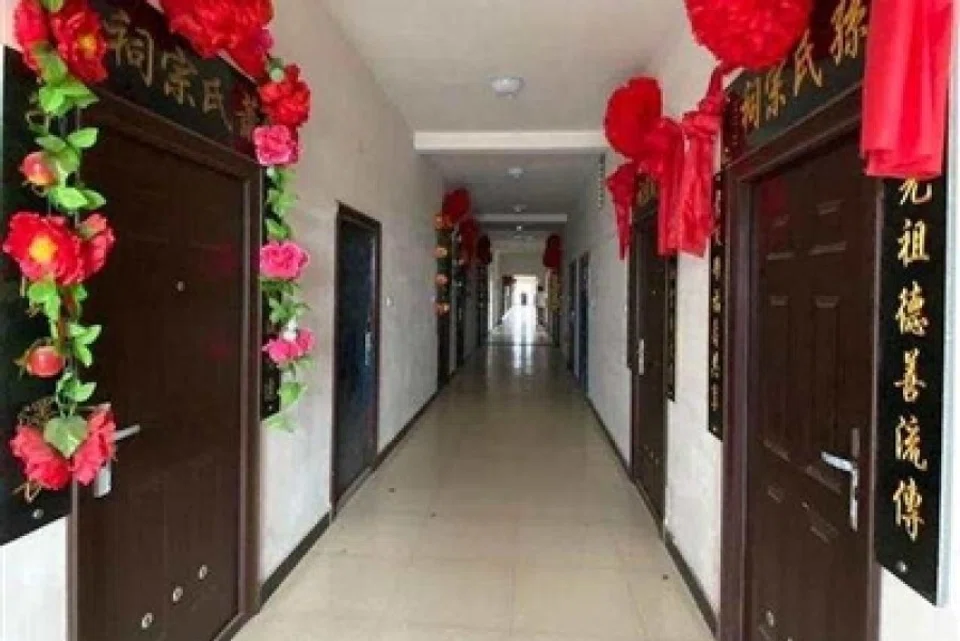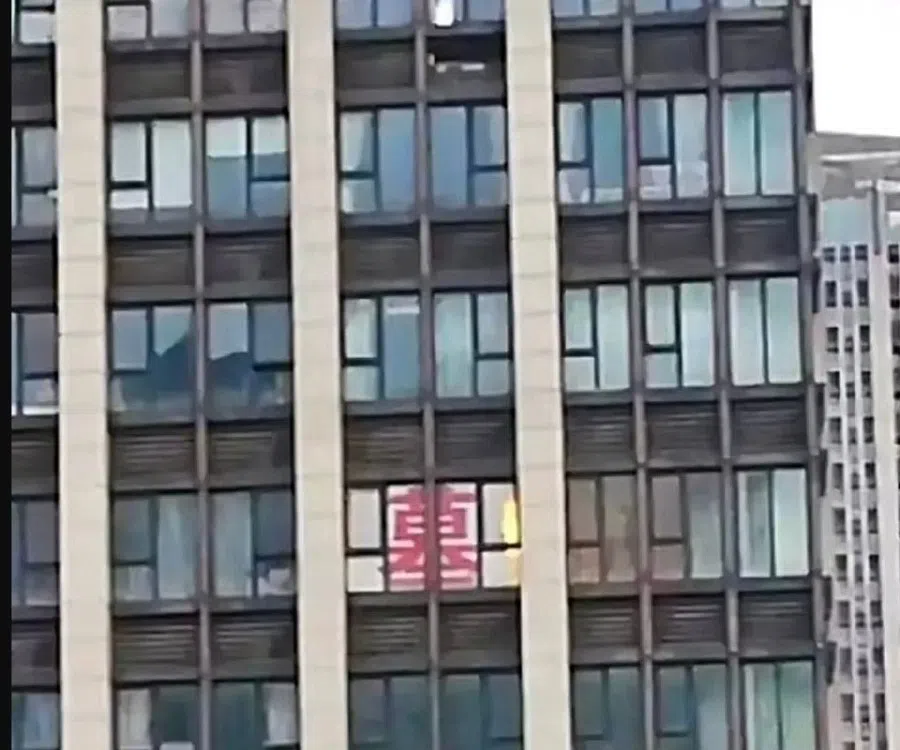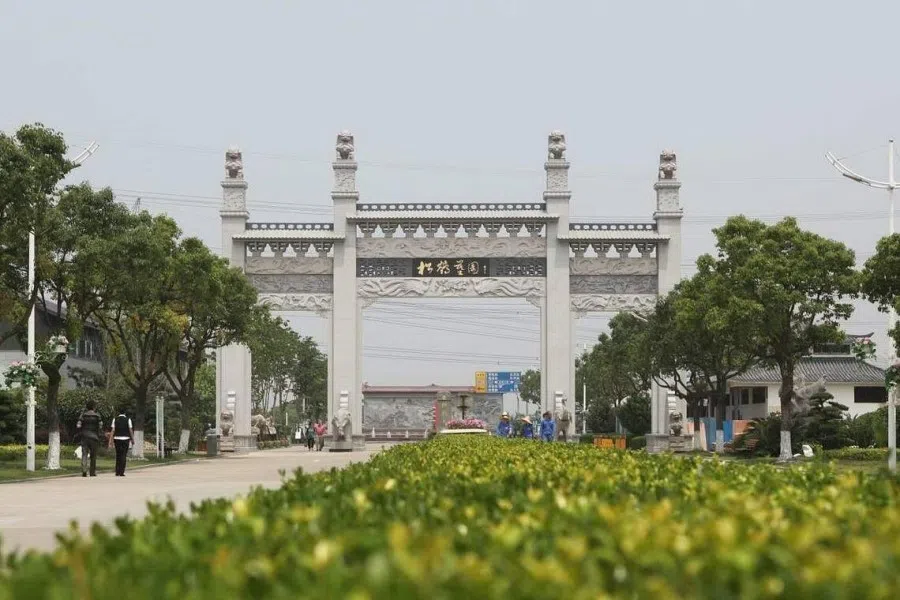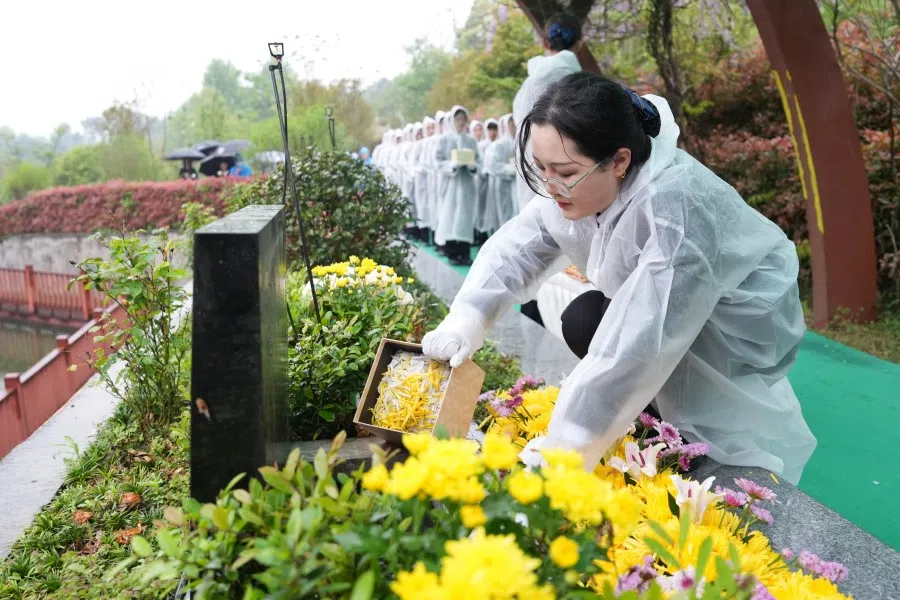The Chinese are storing loved ones’ ashes in residential areas
Most of us would be familiar with the idea of cemeteries and columbariums, but what about a residential unit to store the ashes of the departed? Lianhe Zaobao’s China Desk looks into how rising prices of burial plots has led to a somewhat unconventional solution in China.

For many Chinese, housing used to be the main tool for saving and making money. However, some families are now storing their loved one’s ashes in housing units.
On 3 April, Legal Daily published a 3,900-word report on such “ash units”, or housing units dedicated to the storage of urns containing human ashes as well as for memorial services.
More dead than living people in residential areas
The report said such housing units are common in many parts of China, with an interviewee saying that their residential area has a certain proportion of ash units, and some floors or blocks might have “more dead than living people” in them.
The report explains that “there are practical issues of high land prices for burial plots in cemeteries, high management costs and short lease periods in large cities”, and that most owners of these ash units themselves live in first- and second-tier cities in China.
Ms Zhao from Chaoyang District, Beijing, laments that even a typical burial plot in a remote cemetery in Beijing costs over 100,000 RMB (US$13,800): “It is too expensive. I cannot afford it.” On top of the high costs, burial plots are on a 20-year lease and come with management fees.
Ms Zhao adds that she has already viewed a building site in Chongli District in Zhangjiakou city, northwest Hebei, where a moderate-sized housing unit with a 70-year ownership costs 250,000 RMB. Chongli District has a population of less than 150,000.
A Tianjin homeowner, who has purchased an ash unit, also told Legal Daily that buyers would generally choose a small, remote residential district with fewer households and lower housing prices. This homeowner added that it is best to do so quietly and not inform the neighbours and nearby residents, so as to avoid causing mental stress and sparking disputes.

China’s media reposted the report, leading to online discussion. Some netizens believe that ash units will affect the prices of residential units in the district, besides being extremely inauspicious. “It is a terrible act, bad for the neighbours, and also for the buyer’s family.” However, others disagree: “The unit is mine, so what does it matter?”
It is worth noting that most netizens agree the main reason for this is that burial plots are getting increasingly expensive: “Market pricing has made burial plots so expensive”; “It is more cost-effective for large families to buy an ash unit than to pay for burial plots.”
... when the buyer changes the “residential” purpose of the housing unit to “funeral” for the storage of urns, it has in fact constituted a change in land use and infringed upon the relevant regulations. — Zhang Dacheng, Director, Sync Technology Law Group in Shanghai
Are ash units legal?
Judging from online reactions, ash units did not come out of nowhere, but are more of a desperate move by Chinese people due to burial plots being too expensive. Nevertheless, from the legal perspective, such use of housing units is unlawful.
Legal Daily quoted Zheng Ning, director of the Law Faculty of the School of Cultural Industries Management of the Communication University of China, as saying that “the purpose of commercial housing is residential and not for storing the ashes of the deceased, which is a departure from the common understanding of ‘residential’.”
Zheng Ning emphasises that the purchase of commercial housing to specifically store urns containing ashes contravenes the principle of public order or good morals in China’s Civil Code. The affected persons may apply for resolution by the property management company or initiate a lawsuit, demanding restoration of the original use and compensation for emotional distress.

Zhang Dacheng, director of Sync Technology Law Group in Shanghai, says that the current laws and regulations in China place some restrictions on residents using commercial housing to store urns for memorial services. Referring to the Interim Regulations of the People’s Republic of China Concerning the Assignment and Transfer of the Right to the Use of the State-owned Land in the Urban Areas promulgated by the State Council, he says that when the buyer changes the “residential” purpose of the housing unit to “funeral” for the storage of urns, it has in fact constituted a change in land use and infringed upon the relevant regulations. Even if administrative regulations do not regulate the actions of civil entities, the use of commercial housing for the storage of urns by homeowners without permission contravenes the basic principles of civil law in public order or good morals.
... with rising land costs in China, besides increasing prices of products and real estate, the prices of burial plots have also gone up, particularly in large cities.
He said: “Specific to funerals, Article 14 of the Regulations on Funeral and Interment Control clearly stipulates that the ‘Conducting of funeral activities must not disrupt public order, endanger public security and infringe upon the legitimate rights and interests of other people’. Therefore, residents are obliged to adhere to the most basic public order or good morals when storing the urns of their deceased family members.”
However, Bao Hua, a senior real estate lawyer, told The Beijing News that it is not illegal for a homeowner to store their deceased relatives’ ashes in their home and pay respects to them if these activities do not affect the normal lives of the other homeowners. However, it would be illegal to store other people’s ashes beyond those of relatives, and to turn the home into a business.
Bao added that it is also unlawful if paying respects affects the normal lives of the other homeowners, even if the homeowner stores only their deceased relatives’ ashes.
Why have the prices of burial plots skyrocketed?
In recent years, with rising land costs in China, besides increasing prices of products and real estate, the prices of burial plots have also gone up, particularly in large cities.
On 1 April, “V View Financial News” (V观财报), the public WeChat account of Economic View, calculated that the average asking price of a burial plot is 83,100 RMB in Beijing, about 99,900 RMB in Shanghai, 43,300 RMB in Guangzhou and 64,100 RMB in Shenzhen, based on the reference prices on Mutuan.org, a portal for viewing and selecting burial plots. It has to be noted that these are reference prices and do not necessarily reflect market prices.
...a CCTV.com report on 4 April, which said a 0.33 square metre burial plot with a crystal tablet in a Beijing cemetery costs at least 119,800 RMB; other 0.33 to one square metre burial plots with reclined or erect tablets have prices ranging from 138,000 RMB to 500,000 RMB.

This point is also evident from a CCTV.com report on 4 April, which said a 0.33 square metre burial plot with a crystal tablet in a Beijing cemetery costs at least 119,800 RMB; other 0.33 to one square metre burial plots with reclined or erect tablets have prices ranging from 138,000 RMB to 500,000 RMB.
The report cited a Ms Chang, who recently paid respects to her ancestors in Xiamen, who said she paid 100,000 RMB in 2016 for a double burial plot for her deceased kin. Compared to 240,000 RMB today for a single burial plot, the huge gap is staggering.
Xinhua quoted Wu Yongwen, deputy director of the Social Affairs Office of the Department of Civil Affairs of the Guangxi Zhuang Autonomous Region, as saying that “the high prices of urban burial plots are due to the imbalance between supply and demand”.
He explained that the traditional funeral customs in China emphasise ground burial as a final resting place for the deceased so that the living can feel at ease, but as large cities are currently running out of burial plots due to larger populations, this shortage has naturally resulted in higher prices.
“People still attach great importance to ground burial. Although lawn burials are cheaper, people with children rarely consider it, let alone sea burials, flower bed burials and tree burials.” — a Weibo netizen
Zhou Runan, an associate professor and doctor of anthropology at the School of Journalism and Communication at Sun Yat-sen University, spoke of ownership rights. He told Southern Metropolis Daily that “ordinary people only have usage rights for cemeteries, not permanent ownership”.
According to the Interim Measures for Public Cemetery Management by China’s Ministry of Civil Affairs, the one-time fee collected for public cemetery management shall not exceed a duration of 20 years. “As management fees must again be collected beyond 20 years, this is basically a lease”, which also affects the costs of using burial plots.
According to CCTV.com, public cemeteries in China are categorised as public-managed and market-operated cemeteries. Public-managed cemeteries are limited by household registration to provide burial services for villagers, and are not to be sold to others. Market-operated cemeteries are public cemeteries with a wider clientele that provide burial services for city residents.
Is ground burial more popular than ecological burial?
Further analysis shows that the above are related to the special emphasis on ground burial in China’s traditional funeral culture. “People still attach great importance to ground burial. Although lawn burials are cheaper, people with children rarely consider it, let alone sea burials, flower bed burials and tree burials,” said a Weibo netizen.
The setback suffered by Henan’s grand campaign in 2012 to “clear graves to increase arable land” reflects the extent of the people’s emphasis on ground burial. According to reports, at the beginning of 2012, Henan province, where ground burial was prevalent, progressively cleared graves in cities such as Luoyang, Nanyang, Shangqiu and Zhoukou to convert burial sites to agricultural land.
However, due to the compulsory clearing of graves in some areas and the relatively austere public cemeteries, the campaign came under strong opposition and questioning by the people. Consequently, it was suspended in some areas.

Many believe that the shortage of land for burial will worsen in future due to the acceleration of urbanisation in China and its ageing population. In 2016, China issued guidelines on promoting land-saving ecological burials, encouraging people to adopt ecological burials such as tree burial, sea burial and lawn burial. Some local governments have even formulated policies to incentivise those who opt for ecological burials.
However, these measures seem to be less than effective. On 4 April, Xinhua quoted an unnamed official from the Ministry of Civil Affairs as saying that the proportion of the population that has opted for ecological burials has increased to 3.2% in the past three years. Simply put, only about three out of 100 deceased will opt for ecological burials.
Despite China’s tradition of ground burials, why do some people choose to purchase a housing unit to store urns containing the ashes of the deceased? Apart from the high prices of burial plots, there are many questions worth pondering.
If we are unable to change current ideas and forms of burial, as land decreases, ash units will increase.
This article was first published in Lianhe Zaobao as “骨灰房的背后”.




![[Big read] When the Arctic opens, what happens to Singapore?](https://cassette.sphdigital.com.sg/image/thinkchina/da65edebca34645c711c55e83e9877109b3c53847ebb1305573974651df1d13a)
